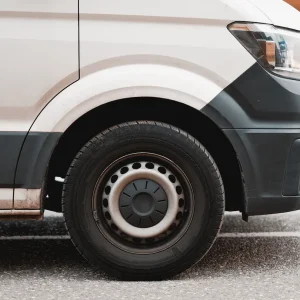It’s aimed at making smaller fleets and owner/operators more aware of how they can cut emissions through vehicle choice and driver behaviour. The second phase, due in either late April or early May, is to publish emissions and economy data on LCVs. To be hosted by the Vehicle Certification Agency’s website, the database should offer emissions and mpg data from every LCV manufacturer.
“It’s a natural progression that we’re moving onto vans now having spent a lot of time talking about car CO2,” said Malcolm Fendick, deputy director of the Department for Transport cleaner fuels and vehicles division. “This is the beginning of the process on van CO2. We need to continue talking to the industry and the EC as there are certain prospects of regulation being proposed and we want to be framed as efficiently as possible with minimum cost to the industry.”
The SMMT chief executive Paul Everitt admitted the testing procedure isn’t yet perfect for commercial vehicles. “It’s the first part of a longer strategy to provide consumers with the best information and advice,” he said. “We’re not saying it’s a definitive level of information to guide a purchase. You can take the view that you just don’t publish anything, but we’re going for a more transparent approach.”
“In terms of testing, we realise there’s an awful lot more we could do,” said Fendick. “We have to find the best way of doing it.”
Van makers have expressed a fear that the Government would see the figures as a method of taxing commercial vehicles by emissions. Both men, however, denied that such a move was likely. “The advice at the moment is that it’s not appropriate to tax on CO2,” said Fendick, while Everitt added that “we’re some way away from van tax”.
The published figures will come from the manufacturer’s type-approval tests, carried out to the same pan-European standards and generally in the manufacturer’s own country. The methodology used to derive the figures mirrors that used for passenger cars and therefore doesn’t take any payload into account, making the results academic rather than real-world.
What Van? remains sceptical that the CO2 figures, despite the fact that they are virtually meaningless, will not be used as the basis for some sort of additional stealth taxation.
Click here to download Right Van Man PDF.

 At an event held at the Society of Motor Manufacturers & Traders’ (SMMT) HQ in London, the first part of a scheme to make light commercial vehicle fuel consumption and CO2 emission figures available to the general public was revealed in the form of a van buying guide called Right Van Man.
At an event held at the Society of Motor Manufacturers & Traders’ (SMMT) HQ in London, the first part of a scheme to make light commercial vehicle fuel consumption and CO2 emission figures available to the general public was revealed in the form of a van buying guide called Right Van Man. 



